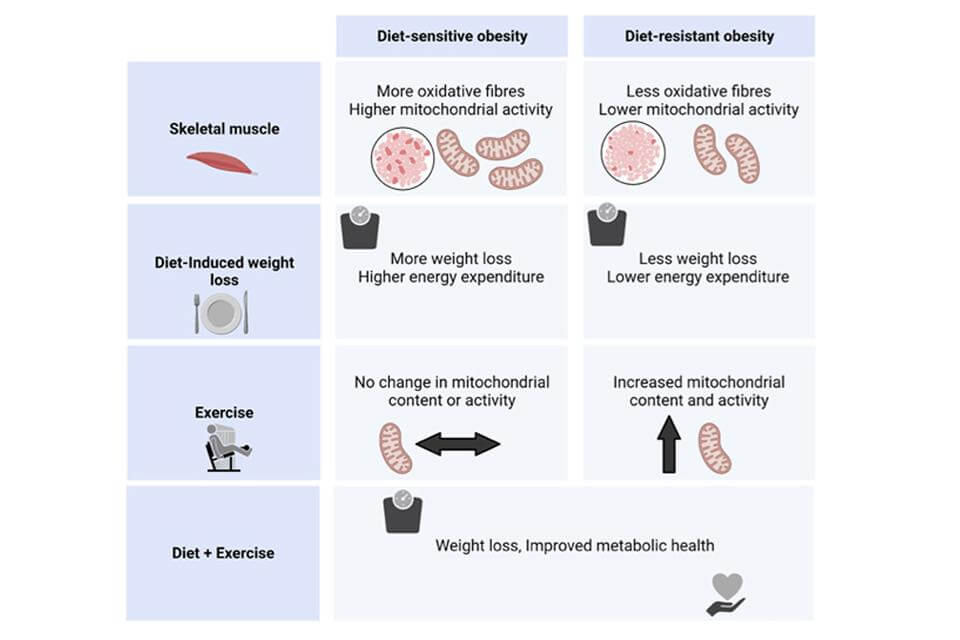OTTAWA, Ontario — Dieting doesn’t work for everyone. As much as people may think that cutting out fattening foods will slim them down, researchers in Canada say some obese individuals are simply resistant to diet-related weight loss plans. With that in mind, a team has created what they call the “crowning glory” of weight loss research. The study lays out a new roadmap for people to lose weight and keep it off.
“If you look at a large group of people who are overweight and trying to lose weight, they don’t respond to exercise very much. But now we’ve found that people in this [diet-resistant] obesity phenotype really do,” says Dr. Robert Dent from Ottawa Hospital’s weight management clinic in a university release. “What the findings are telling us is that when we see individuals with obesity who don’t respond to dietary restriction, they should be shunted over to physical activity.”
The team from the University of Ottawa add that their study may help personalize weight loss programs for patients with difficult-to-treat cases of obesity. For many years, researchers say there has only been one consistent approach for improving the health of overweight and obese people — put them on a low-calorie diet. However, studies show that diet-heavy approaches to weight loss aren’t successful for everyone who tries them.
Specifically, the new research reveals the molecular mechanisms that drive changes in weight and why diet and exercise affect different people in different ways.

Study authors mined clinical data from more than 5,000 different weight loss patients. From that collection, they reviewed 228 cases and selected a set of 20 women with obesity. These individuals participated in a closely supervised exercise program featuring 18 sessions using treadmills and weights. The women did this three times a week for six weeks.
Using machine learning technology to examine each participant’s skeletal muscle, results show that exercise improves skeletal muscle metabolism and enhances an obese person’s weight loss capacity if they are “diet-resistant.” According to researchers, these people with difficult-to-treat cases of obesity often face accusations that they’re “cheating” on their diets when trying to lose weight with a low-calorie meal plan.
“For those individuals who have obesity and who’ve had enormous difficulty losing weight, the message for them is: You are in a group of individuals for whom exercise is particularly important. And that’s really going to help you lose weight,” says Dr. Ruth McPherson, a professor at the uOttawa Faculty of Medicine.
Overall, study authors say people with diet-resistant obesity — meaning they are in the bottom 20 percent for rate of weight loss following a low-calorie diet — should immediately switch to exercise training instead.
In the United States alone, over 40 percent of the adult population is obese, according to the Centers for Disease Control and Prevention.
The study is published in the journal eBioMedicine.

So, let me see if I get this latest cutting edge research.
Proper nutrition and exercise helps with lasting weight loss.
WOW~!